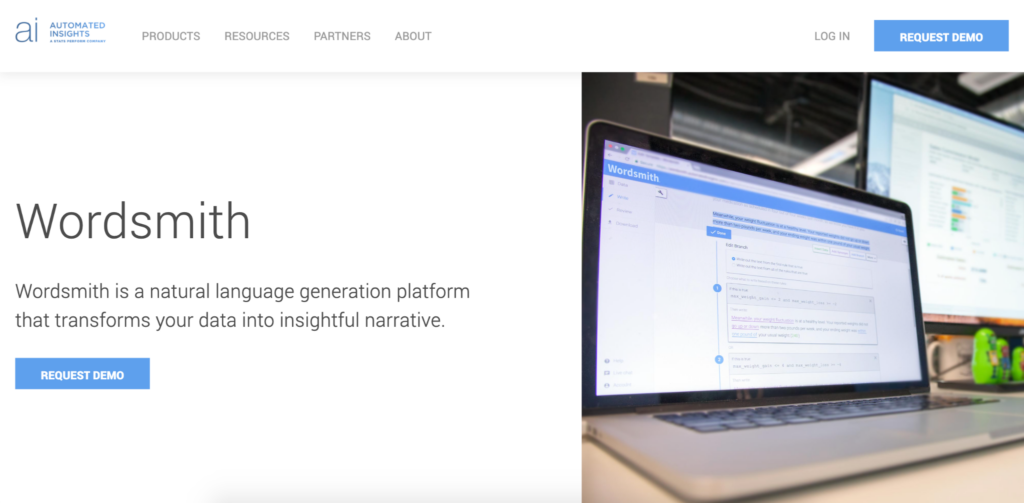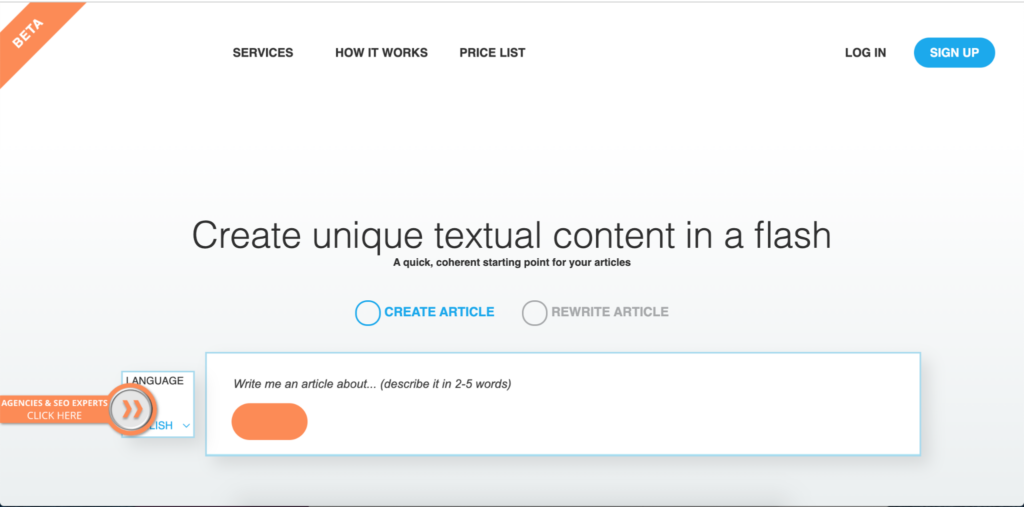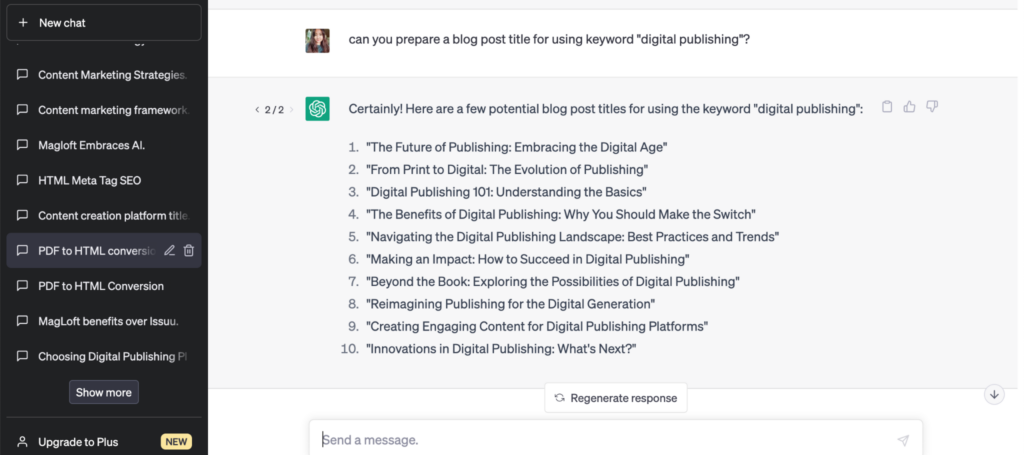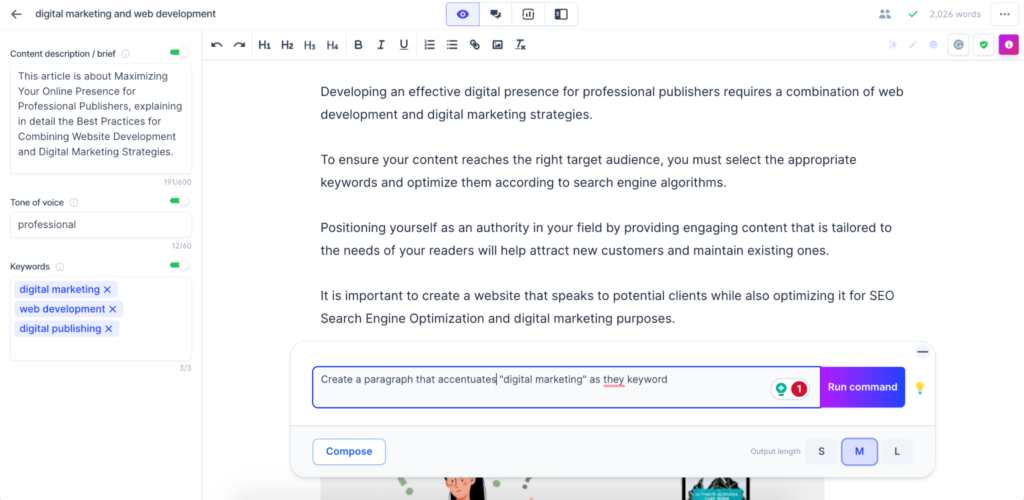
In the digital publishing industry, keeping your digital publication updated with fresh content is crucial. But for busy business owners and small publishers, generating quality content can be daunting. That’s where AI content generator come in – these tools can help businesses create engaging, relevant content without dedicating significant time and resources to the process. In this beginner’s guide, we’ll explore what AI content generators are, how they work and their potential to generate more leads for your business.
What is an AI content generator?
An AI content generator is a software tool that uses artificial intelligence to generate written content. It can produce articles, blog posts, social media updates, and even product descriptions. The process begins with the user inputting a topic or keyword into the system which then uses its algorithms to brainstorm ideas and create relevant content based on the information provided.
Using an AI content generator comes with many benefits such as increased productivity, cost savings and consistency in quality of outputted material. This tool allows business owners to keep their websites up-to-date without dedicating significant amounts of time or resources towards copywriting tasks. Additionally, utilizing this technology will allow for more efficient lead generation through providing regular online traffic from updated website and social media pages.
Definition
An AI content generator is a tool that uses artificial intelligence to brainstorm and create written content. Several types of AI content generators are available in the market, including ones specialising in copywriting, blog post generation or social media updates. Some key features and functionalities of an AI content generator include the ability to analyze data and user behavior to generate personalized recommendations and the capacity to generate high-quality content quickly and efficiently. This can help businesses keep their websites up-to-date with fresh, relevant content without having to dedicate much time or resources to this task.
How does it work?
AI content generators use Natural Language Processing technology to analyze the input data, brainstorm ideas, and generate high-quality articles, blog posts, social media updates and more. The process involves breaking down a piece of content into smaller parts called tokens before analyzing the context and generating new text that fits seamlessly with the original topic.
Examples of AI-generated content are impressive – from sports news articles to product descriptions for e-commerce sites. With an AI content generator at your disposal, you can save time while producing engaging pieces that resonate with your target audience.
Benefits of using an AI content generator
Using an AI content generator can provide several time-saving benefits for businesses. Instead of spending hours brainstorming and copywriting, an AI tool generates high-quality written material in just a few clicks. This cost-effective way to produce content frees up employees to focus on other essential tasks, ultimately increasing productivity due to streamlined processes enabled by automation.
Additionally, using an AI content generator allows businesses to generate fresh and engaging pieces quickly without sacrificing quality. The algorithms used by these tools ensure that the generated content is relevant and tailored to the target audience’s interests, making it more likely that readers will engage with the website or social media account. Overall, incorporating an AI content generator into a business’s workflow can have numerous advantages beyond just saving time and resources.
AI Tools for Generating Content
AI can help publishers or content creator to prepare writing templates. Wordsmith is a powerful AI tool that can generate high-quality articles by using natural language processing technology. Articoolo is another AI-powered platform that uses machine learning algorithms to write unique articles in minutes. Both of these tools are great options for businesses looking to save time and resources while creating engaging content.
Quill and Heliograf are other examples of AI tools that can help businesses generate compelling content. Quill offers automated writing solutions for industries such as finance, ecommerce, and healthcare, allowing companies to create personalized messaging at scale. Heliograf has been used by media outlets like The Washington Post to automatically produce news stories from raw data sets in real-time. Overall, the use of AI content generators has revolutionized the way businesses approach digital publishing and will continue to shape the future of the industry.
1. Wordsmith

Wordsmith is a crucial skill when it comes to creating content that engages and informs your audience. With the help of AI content generators, business owners can now produce high-quality articles without having to be a wordsmith themselves. These tools use natural language processing and machine learning algorithms to analyze data, generate insights, and craft compelling stories that resonate with target audiences.
2. Articoolo

Articoolo is an AI-powered content generation tool that can create unique articles in just a few minutes. By analyzing the topic and desired keywords, Articoolo’s algorithm generates high-quality content that is both relevant and engaging. This tool saves time for business owners as they no longer need to spend hours researching and writing articles themselves.
The benefits of using Articoolo are clear – it helps businesses keep their websites updated with fresh content, which can attract more visitors and generate leads. Additionally, this AI-based tool allows business owners to focus on other important aspects of running their company while still maintaining an active online presence. Overall, Articoolo is a game-changer for those looking to streamline their content creation process without sacrificing quality or relevance.
3. ChatGPT

One example of how ChatGPT help content creation
ChatGPT is an AI chatbot that can assist business owners in generating content ideas, headlines, and even full articles. By analyzing user input and utilizing machine learning algorithms, ChatGPT can provide customized content suggestions that align with a business’s brand voice and target audience. This tool is particularly helpful for those who struggle with writer’s block or need an outside perspective on their content strategy. With ChatGPT, business owners can easily brainstorm new ideas and create engaging content that resonates with their audience. Overall, AI content generators like ChatGPT are transforming the publishing industry by making content creation more efficient and accessible for businesses of all sizes.
4. Jasper

One use case example of how Jasper helped generate a blog post
Jasper is an AI platform that can help businesses create personalized and interactive content for their customers. Its natural language processing capabilities allow Jasper to understand customer input and generate content that is relevant and engaging. This tool can be used to create chatbots, virtual assistants, and even interactive product demos that can enhance the customer experience. Jasper’s advanced algorithms also enable it to learn from customer interactions and adjust its content accordingly, making it a valuable tool for businesses looking to improve their digital marketing efforts. With Jasper, businesses can create dynamic and interactive content that helps them stand out in an increasingly crowded digital landscape.
How AI-generated content can generate more leads

Using AI-generated content can be an effective way to generate more leads for your business. With the help of AI content generators, you can quickly create and publish fresh, high-quality content that is optimized for search engines. This means that your website and social media accounts are more likely to appear in relevant search results, increasing the visibility of your brand.
Another benefit of using AI-generated content is personalization. By analyzing data about your target audience’s preferences and behaviors, these tools can create individualized content that resonates with each user. This personalized approach can lead to higher engagement rates and ultimately drive more conversions for your business.
1. SEO optimization
SEO plays a crucial role in improving the visibility and ranking of your website on search engines. By using an AI content generator, you can optimize your content for SEO without having to spend hours researching and analyzing keywords. These tools take into account factors like keyword density, readability, and meta tags to ensure that your content ranks high on SERPs.
Another benefit of using an AI content generator is that it allows you to create personalized content for your target audience. By analyzing user behavior and preferences, these tools generate highly relevant and engaging content that resonates with your readers. This not only improves the user experience but also helps build brand loyalty and drives conversions.
2. Personalization
Nowadays, customers demand personalized experiences from businesses. AI content generators can help business owners achieve this by analyzing user data and creating tailored content. By utilizing AI technology, companies can create a unique brand voice that resonates with their audience and boosts engagement.
Personalization is not limited to written content either; AI tools can also generate personalized images and videos based on user preferences. This not only saves time for business owners but also provides a more enjoyable experience for the consumer. With the ability to personalize at scale, AI content generators are quickly becoming essential in the publishing industry.
3. Time-saving
Time is money. AI content generators can save business owners countless hours by automating the process of creating fresh and relevant content for their websites and social media accounts. With intelligent algorithms that can analyze data and generate quality content in minutes, AI-powered tools offer a reliable solution to the problem of limited time resources.
By utilizing an AI content generator, business owners not only save time but also ensure that their online presence remains up-to-date with current trends and topics. Additionally, these tools allow for customization options that enable businesses to tailor their messaging to specific audiences without sacrificing valuable time or resources on manual editing processes.
Challenges of using AI content generators
Creating content using AI content generators may seem like an easy and efficient process, but it comes with its own set of challenges. One major challenge is maintaining quality control. While AI can generate text at a rapid pace, ensuring that the output is accurate and error-free requires human input and oversight.
Another challenge of using AI content generators is their creativity limitations. While these tools are effective at producing straightforward and informative pieces, they may struggle with more complex writing tasks such as storytelling or crafting compelling headlines. This can result in generic or unremarkable content that fails to capture the attention of readers.
1. Quality control
AI content generators have revolutionized the way businesses create and publish digital content. However, it’s important to ensure that the generated content meets quality standards before publishing. Quality control is a crucial aspect of AI-generated content, as it helps ensure that the output is accurate, grammatically correct, and relevant to the target audience.
To maintain high-quality standards in AI-generated content, professionals can use tools such as grammar checkers and plagiarism detectors. These tools help identify errors or inconsistencies in language usage while ensuring originality in created content. By implementing these quality control measures when using an AI Content Generator, business owners can generate engaging and informative digital assets without compromising on accuracy or relevance.
2. Creativity limitations
One of the limitations of using AI content generators is its restricted creativity. While AI can produce grammatically correct sentences, it lacks the human touch and intuition that can make content more engaging and relatable to readers. It cannot replicate a writer’s unique voice or perspective, making it challenging to create truly original work without significant customization.
To overcome this limitation, one strategy is to use AI as a starting point for generating ideas and then editing and refining them with human input. By combining the efficiency of AI-generated content with the expertise of skilled writers, businesses can produce high-quality materials that resonate with their target audience while saving time and resources in the process.
Conclusion
In conclusion, AI content generators can significantly benefit business owners by providing them with a quick and cost-effective way to keep their websites and social media accounts updated with relevant content. With the ability to generate high-quality articles, product descriptions, and even emails in just a matter of minutes, AI content generators offer an innovative solution for businesses looking to streamline their marketing efforts.
Furthermore, as technology continues to advance at an unprecedented rate, it’s clear that AI content generators will only become more sophisticated over time. By harnessing the power of machine learning algorithms and natural language processing techniques, these tools are poised to revolutionize the publishing industry by enabling businesses of all sizes to create compelling content on-demand.
